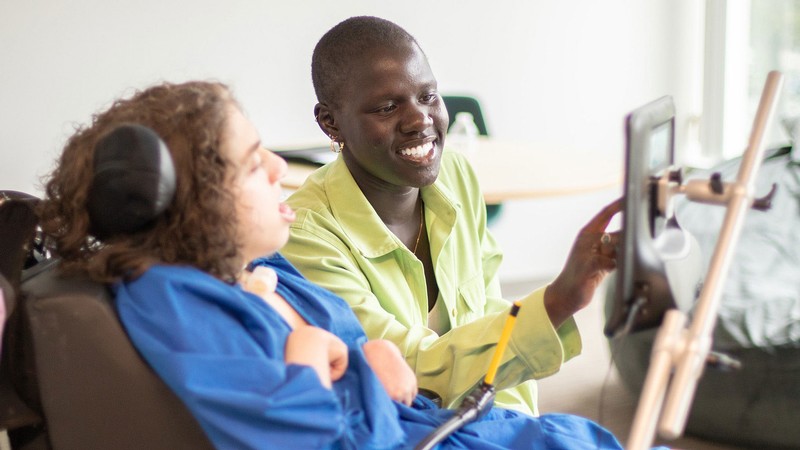This fall, the Center for Employment & Inclusion at the Institute for Disability Research, Policy & Practice will begin research into an innovative approach to employing people with significant support needs.
A nearly $750,000 Field Initiated Projects grant from the National Institute on Disability, Independent Living and Rehabilitation Research will fund a randomized, controlled trial study on customized employment.
The grant is administered by Tim Riesen, the Research & Training Division director at the IDRPP.
Customized Employment Research
Existing research points to some real benefits for people with disabilities in customized employment. Typically, work for people with significant disabilities results in low-paying service jobs like fast food, folding laundry or janitorial work. People in customized employment are more likely to move outside those jobs, and to earn higher wages.
But Riesen said research has also shown that workers in customized employment are less likely to move into long-term, competitive employment when compared to those receiving the more traditional supported employment services.
Riesen and IDRPP researcher Audrey Juhasz hope their work will help them better understand the reasons behind those differences. They will begin by establishing a clear definition of what customized employment is, because it does not seem to be implemented to fidelity from person to person and state to state.
After developing a comprehensive CE replication manual, the researchers will conduct a randomized controlled trial to compare those who are receiving traditional employment supports like supported employment services to those in customized employment.
The research will help them understand what factors and methods are more likely to be successful, Riesen said.
Customized and supported employment, explained
Supported employment (SE) has been effective vocational rehabilitation service for nearly 40 years. During SE, an employment specialist conducts traditional employment assessment to determine a job seekers strengths and interest and matches the job seeker to existing market jobs.
“Individuals with the most significant support needs often fall outside the traditional supported employment model,” Riesen said. “They are frequently perceived as unable to compete for market jobs due to the nature of their disabilities. … With the customized employment approach, we don’t make judgments about whether someone is employable. Instead, we focus on strengths, interests and discovering the conditions under which they can successfully work.”
Customized Employment (CE) emerged in 2001 as a strategy to support individuals with the most significant disabilities in achieving meaningful employment. In 2014, it was formally recognized as a vocational rehabilitation service under federal policy.
CE begins with discovery, which is a qualitative process to understand a job seeker’s strengths, interests and support needs.
“It then focuses on identifying how those align with opportunities in the local business community,” Riesen said. “An employment specialist or job coach represents the individual and works directly with employers to negotiate a job that matches the person’s unique profile, often creating a position that didn’t exist prior to that conversation.”
It’s a method that requires both willing employers and knowledgeable support staff.
In addition to research, the Center for Employment and Inclusion offers research-based training for employment specialists and job coaches who work with people with disabilities. Find out more about CEI offerings on the center’s website.
